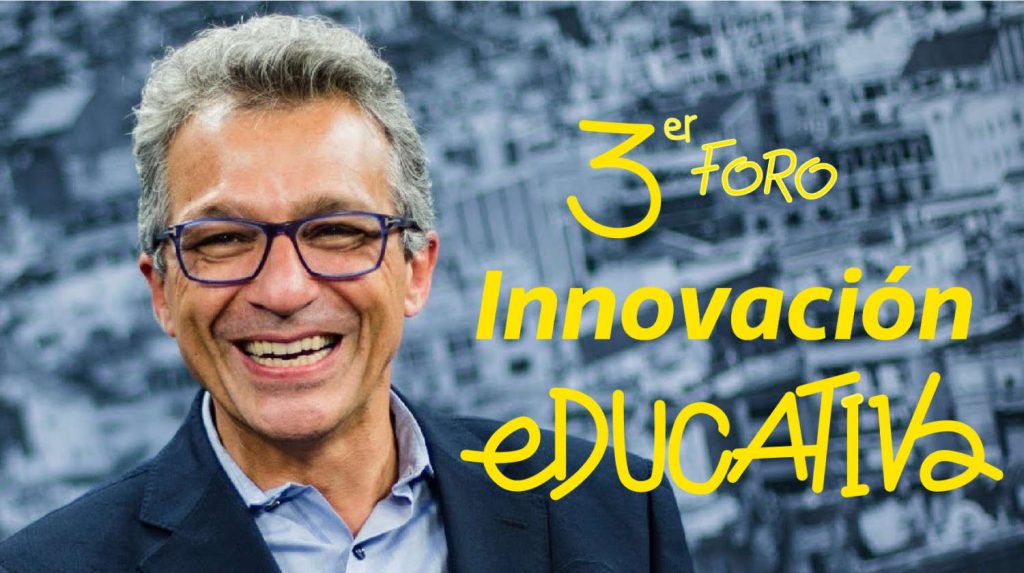
El neurólogo y profesor de la Escuela de Medicina de Harvard, Álvaro Pascual-Leone, tratará este delicado tema en el III Foro de Innovación Educativa de Caxton College
Preocupados por cómo la ansiedad, el estrés, la depresión y otros problemas relacionados con la salud mental afectan cada vez más a los jóvenes en edades tempranas, Caxton College ha organizado la tercera edición de su foro educativo anual en torno a la figura de Álvaro Pascual-Leone, uno de los investigadores españoles que mejor conoce el comportamiento del cerebro humano y sus relaciones con los métodos de aprendizaje. A su vez, este eminente científico está considerado como uno de los mayores expertos mundiales en el campo de la estimulación magnética cerebral, una técnica no invasiva que se utiliza para manipular conexiones neuronales de forma que mejore la salud cerebral del paciente.
En esta charla, que el investigador valenciano impartirá el próximo lunes 18 de febrero en la Fundación Bancaja, compartirá con el público asistente el reto de educar un cerebro sano desde la infancia hasta la vejez para “reducir el impacto de alteraciones cerebrales, el deterioro cognitivo asociado a la edad y enfermedades neurológicas y psiquiátricas”, tal como comenta Pascual-Leone, quien ha sido reconocido por Thompson Reuters como una de las mentes más influyentes del mundo científico y uno de los 15 mejores investigadores de neurociencias del mundo.
Según datos de la Organización Mundial de la Salud, una de cada cuatro personas desarrolla a lo largo de su vida un trastorno neurológico o psiquiátrico, y éstos no afectan solo a los mayores. De este modo, es muy importante que desde el ámbito educativo, los docentes cuenten con recursos pedagógicos suficientes para ayudar a los alumnos a prevenir y reducir problemas mentales. “Es esencial mantener la salud cerebral a lo largo de toda la vida, haciendo al cerebro más resistente a los cambios o enfermedades que puedan aparecer. No se trata de mantener un cerebro ‘joven’, sino de conseguir tener un cerebro vibrante y optimizado para la edad que tengamos”, señala Pascual-Leone, quien advierte que “este nuevo paradigma requiere un replanteamiento de las políticas educativas, sanitarias y estilos de vida de las personas”.
El profesor Pascual-Leone, invitado por Caxton College, asistirá al Foro de Innovación Educativa que este colegio británico celebra, por tercer año consecutivo, con el firme propósito de divulgar ideas innovadoras que fortalezcan la enseñanza en las aulas. Esta iniciativa es un reflejo del compromiso que este centro docente tiene por compartir conocimiento de excelencia con toda la sociedad valenciana.
The neurologist and Professor of Neurology at the Harvard School of Medicine, Álvaro Pascual-Leone, will be discussing this delicate subject at the III Caxton College Forum on Innovation in Education
Concerned at how anxiety, stress, depression and other mental health problems are increasingly affecting young people from an increasingly early age, Caxton College has centred its 3rd annual Educational Forum around the figure of Álvaro Pascual-Leone, one of the Spanish researchers best equipped to understand the behaviour of the human brain and its relationships with learning methods. This eminent scientist is considered one of the world’s leading experts in the field of brain magnetic stimulation, a non-invasive technique used to manipulate neuronal connections in such a way that it can improve the health of the patient’s brain.
In this talk, which the Valencian researcher will give on Monday, February 18th, at the Bancaja Foundation, he will share with the audience the challenge of educating a healthy brain from childhood to old age, to “reduce the impact of alterations to the brain, the cognitive deterioration associated with age and neurological and psychiatric diseases,” as he states. Pascual-Leone has been recognised by Thompson Reuters as one of the most influential minds in the scientific world and one of the 15 top neuroscience researchers in the world.
According to data from the World Health Organisation, one in four people develop a neurological or psychiatric disorder during their lives, and these do not just affect the elderly. Therefore, it is very important that in the field of education, teachers have sufficient pedagogical resources to help students prevent and reduce mental problems. “It is essential to maintain brain health throughout our lives, making the brain more resistant to whatever changes or diseases may occur. It is not about maintaining a “young” brain, but rather about having a vibrant brain, one that is optimised for the age you are,” says Pascual-Leone, who warns that “this new paradigm requires a rethinking of educational policies, health and lifestyles”.
Professor Pascual-Leone has been invited by Caxton College to attend the Forum of Educational Innovation that this British school will be holding for its third consecutive year, with the aim of sharing his innovative ideas to support classroom teaching. This initiative is a reflection of the school’s commitment to sharing the latest in quality teaching ideas with the people of Valencia.











Leave a Reply